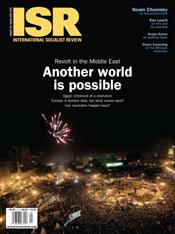As the "best possible" world goes bad

First as Tragedy, Then as Farce
The title of philosopher Slavoj Žižek’s small new book is, of course, a reference to Marx’s variation on Hegel’s remark about repetition in history. Hegel’s notion is, roughly, that a historical event has to happen more than once before one is really convinced that Something Is Up. Marx subsequently observed that, since the first event was the really fundamental one, the repetition has a somewhat ridiculous character, like a person stumbling over an imaginary stair, having not realized that he’s already arrived at where he’s going.
For Žižek, 9/11 is the tragedy, and the financial meltdown of 2008, the farce. The reality that both events are striving to show us is the collapse of liberal-democratic capitalism, the system that Francis Fukuyama infamously called “the end of history”; 9/11 punctured the pretensions of universal cosmopolitan contentment, while the crash of 2008 demolished the utopia of limitless free-market dynamism. Yet while the notion of the “end of history” is generally mocked, “most people today are Fukuyamean, accepting liberal-democratic capitalism as…the best possible society, such that all one can do is to try to make it more just, more tolerant, and so on.”
Indeed, even most of the political left is Fukuyamean: “There is a real possibility that the main victim of the ongoing crisis will not be capitalism but the Left itself, insofar as its inability to offer a viable global alternative was again made visible to everyone.” It is, unfortunately, not possible for someone with knowledge of the U.S. left to disagree with this. Žižek’s book is a welcome intervention in this tricky, even dangerous, situation: an unapologetic demand that revolutionary socialism (or communism, as Žižek prefers it) become the programmatic core of a combative international left.
This book is substantially clearer and more accessible than In Defense of Lost Causes. The author’s thought seems to have been sharpened by the economic crisis, or perhaps by having fewer pages to fill up. That said, the reader without specialist training in philosophy will still stumble glass-eyed through more than one passage.
Žižek is at his best when he mines real, striking insights on politics and culture out of “ordinary” events, critically piercing and then reconstructing the capitalist “ideology.” By this term, the author means not the conscious “beliefs” of a person (liberalism, conservatism, political indifference, etc.) but rather the concealed axioms of capitalist life that structure any conscious belief system. A funny example of this is a notice in a hotel: “To guarantee that you will fully enjoy your stay with us, this hotel is totally smoke-free. For any infringement of this regulation, you will be charged $200.” Žižek notes, “The beauty of this formulation…is that you are to be punished for refusing to fully enjoy your stay.” The underlying assumption is not only that one should be happy under capitalism, but that it is socially irresponsible to “refuse” to be.
Let’s consider another example of ideology. Žižek notes that “nobody takes [capitalist] democracy or justice seriously, we are all aware of their corrupted nature, but we participate in them…because we assume that they work even if we do not believe in them.” Quite true. Think of all the petitions to Congress that you and I have signed without any conceit that they were going to do anything. Probably even the person that drew up the petition knew it was useless. Yet we act as if we live in a representative democracy; and this belief is somehow the fundamental one, since it informs what we actually do.
Rich and devastating as Žižek’s critique of liberal capitalism is, his communism is far more slippery. Although deriving from Marxism, Žižek’s economic ideas do not seem well-grounded in Marx’s system, leading to an analysis of “intellectual production” more inspired by postmodern frisson than the labor theory of value. His comments about Obama also seem out-of-date: Žižek cheers that the president will open up a discussion about the “continuing importance of race in politics” (beer summit?) but worries that Obama might be the “ultimate savior of capitalism” (happily unlikely). Actually, given the inaction on Guantánamo, the escalation of the Afghanistan War, the bank bonus scandal, the health-care fiasco, the coup in Honduras, and the reoccupation of Haiti, Žižek may want to consider if, perhaps, Bush was the tragedy, and Obama the farce.
First as Tragedy, Then as Farce is a stimulating quick read for the theory-minded, full of ideas that deserve to be discussed, debated, and developed for a left that badly needs to rearm itself with politics and polemics.


 Facebook
Facebook Twitter
Twitter Google+
Google+ Tumblr
Tumblr Digg
Digg Reddit
Reddit StumbleUpon
StumbleUpon
